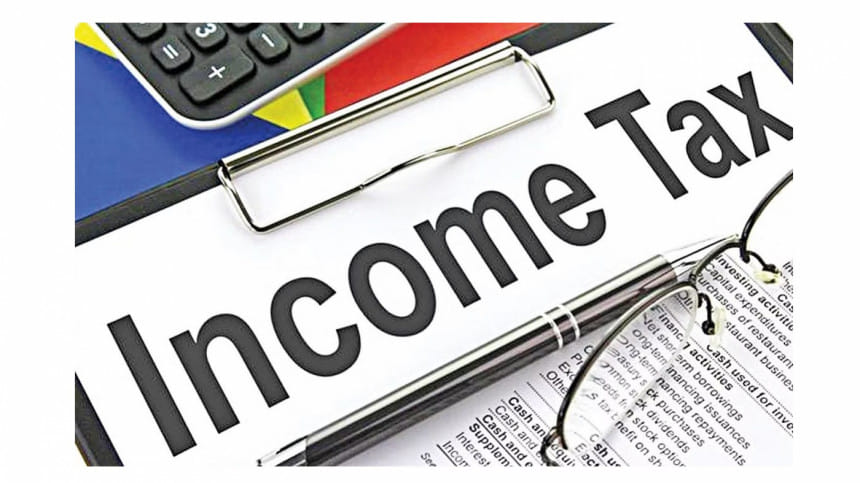Tax system enters a new era

The new income tax law of Bangladesh came into effect yesterday, ending a nearly 40-year era of the old ordinance issued in 1984.
The bill was placed at parliament on June 8 and was approved by lawmakers on June 18.
Termed Income Tax Act 2023, the law continues the provision of imposing a penalty on people who are found having undisclosed offshore wealth.
However, it allows the investment of undeclared wealth for purchasing real estate, such as apartments, without questioning the investor's source of income.
Under the new law, the government has cut the discretionary powers of tax officials as much as possible and aims to reduce cost of doing business.
On the other hand, it expanded areas requiring compulsory return submissions in order to widen the tax net and increase direct tax collection.
From now on, taxpayers will have to show proof of return submission to avail 43 services, up from 38 in the previous law, according to a notification from the National Board of Revenue (NBR) issued yesterday.
Drafted in Bangla, the NBR framed Income Tax Act 2023 in order to update and modernise the direct tax system in line with international best practices.
The new law allows individual taxpayers to furnish tax returns through universal self-assessment throughout the year but a fine will be charged for submissions after the official deadline.
"We arranged the law in a way that taxpayers get an idea about the topic of each section. We kept tax holidays, exemption and rebates in the schedule part for the convenience of taxpayers," said a senior official of the NBR.
The final version of the law has also discarded the provision of compulsory wealth statement submission by persons who travel abroad for anything other than religious or medical purposes.
The Income Tax Act 2023 includes accounting methods, depreciation and amortisation rules, provisions related to capital gains, income from intangible assets, transfer pricing and alternative dispute resolution provisions.
It has cut the number of returns that companies would need to file over tax deduction at source to 12 from 29.
Businesses, however, expressed concern over the inclusion of some provisions in the new law. This includes increasing the minimum tax on carbonated beverage makers, hike in land transfer tax, imposition of tax on provident funds as well as on interest on foreign loans.
In addition, the new tax law features the scope for the deregistration of taxpayer identification numbers.
It also seeks to conduct greater scrutiny of transactions of firms, that enjoy tax exemption, with their associated enterprises in a bid to curb profit shifting and tax evasion.
Moreover, regular tax rates will be imposed on firms, which enjoy tax exemptions, if any of their transactions with associated entities are found to have not taken place as per open market prices and the income of the firms falls below the actual income.

 For all latest news, follow The Daily Star's Google News channel.
For all latest news, follow The Daily Star's Google News channel. 



Comments